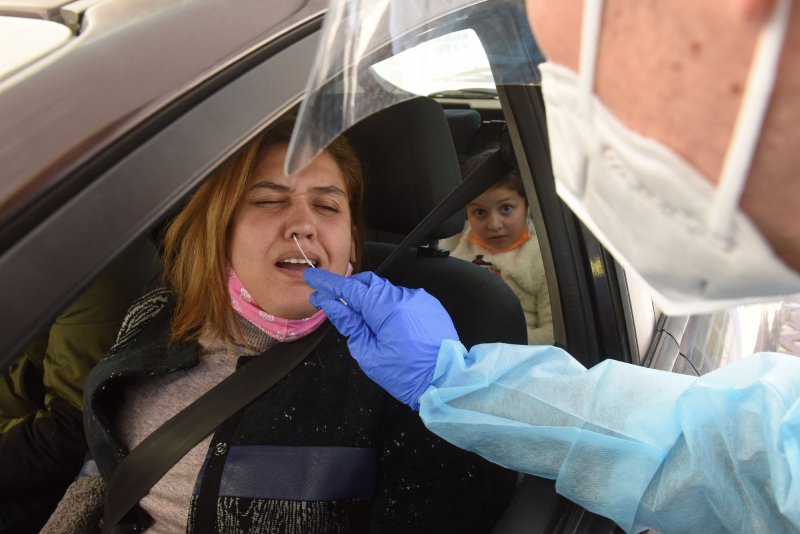An estimated 15% of U.S. adults who have tested positive for COVID-19 reported symptoms lasting longer than two months, a new study says. File Photo by Debbie Hill/UPI |
License Photo
Oct. 27 (UPI) -- Fifteen percent of people who tested positive for the virus reported symptoms lasting longer than two months, according to a new study on the prevalence of long COVID symptoms among a representative sample of U.S. adults.
Among people who tested positive for COVID-19 at least six months earlier, 14.8% reported continued COVID-19 symptoms. And 15.2% of those who tested positive at least 12 months earlier reported persistent symptoms.
The researchers said their study also suggests that the risk for long COVID increases for some subgroups, including older adults and females.
They said vaccination may reduce this risk. People who receive their primary vaccine series -- the first two shots -- before acute illness were less likely to have long-term symptoms.
The scientists also found that people with a graduate education versus high school education or less and urban dwellers were less likely to report persistent long COVID.
Moreover, people were less likely to suffer from long COVID infection when the Epsilon variant or the Omicron variant were dominant in the United States.
The findings were published Thursday in JAMA Network Open.
Dr. Roy H. Perlis, director of the Center for Quantitative Health at Massachusetts General Hospital in Boston, is the study's corresponding author. He is also associate chief for research in Mass General's Department of Psychiatry.
Perlis and his colleagues noted that estimates of the prevalence of long COVID vary widely, as does the way in which data are gathered -- from self-reporting to claims and electronic health records.
But they said their results closely approximate estimates obtained using other methods, including administrative data.
For this study, the investigators conducted an online survey every six weeks from February 2021 to July 2022 with 16,000-plus adults age 18 years or older.
The survey respondents were drawn from every state, which the researchers called a strength of the study.
In the survey, the 12,000-some individuals who self-reported positive results from a polymerase chain reaction, or PCR, test or an antigen test were asked whether symptoms had resolved. If not, they were asked to complete a checklist of commonly reported symptoms.
Fatigue was most common, at 52.2%, followed by loss of smell at 43.7%, "brain fog" at 40.4% and shortness of breath at 39.7%. Nearly half, 45.7%, reported either poor memory or brain fog.
The researchers found that individual symptoms differed by gender, with women significantly more likely than men to report loss of smell, at 46.4% versus 35.3%, cognitive symptoms, at 48.7% versus 36.3%, respectively; anxiety, at 30.8% versus. 22.3%, respectively; and sleep disruption, at 32.4% versus 22.5%, respectively.
The scientists said a "key question for further investigation will be the differences by race and ethnicity in the prevalence of long COVID that we observed," even after accounting for a range of sociodemographic factors.
"The finding that greater educational levels, greater income, and urban versus rural setting are associated with diminished long COVID risk highlights the importance of accounting for non-biological associations in understanding this phenomenon, a limitation of prior investigations," the researchers added.















